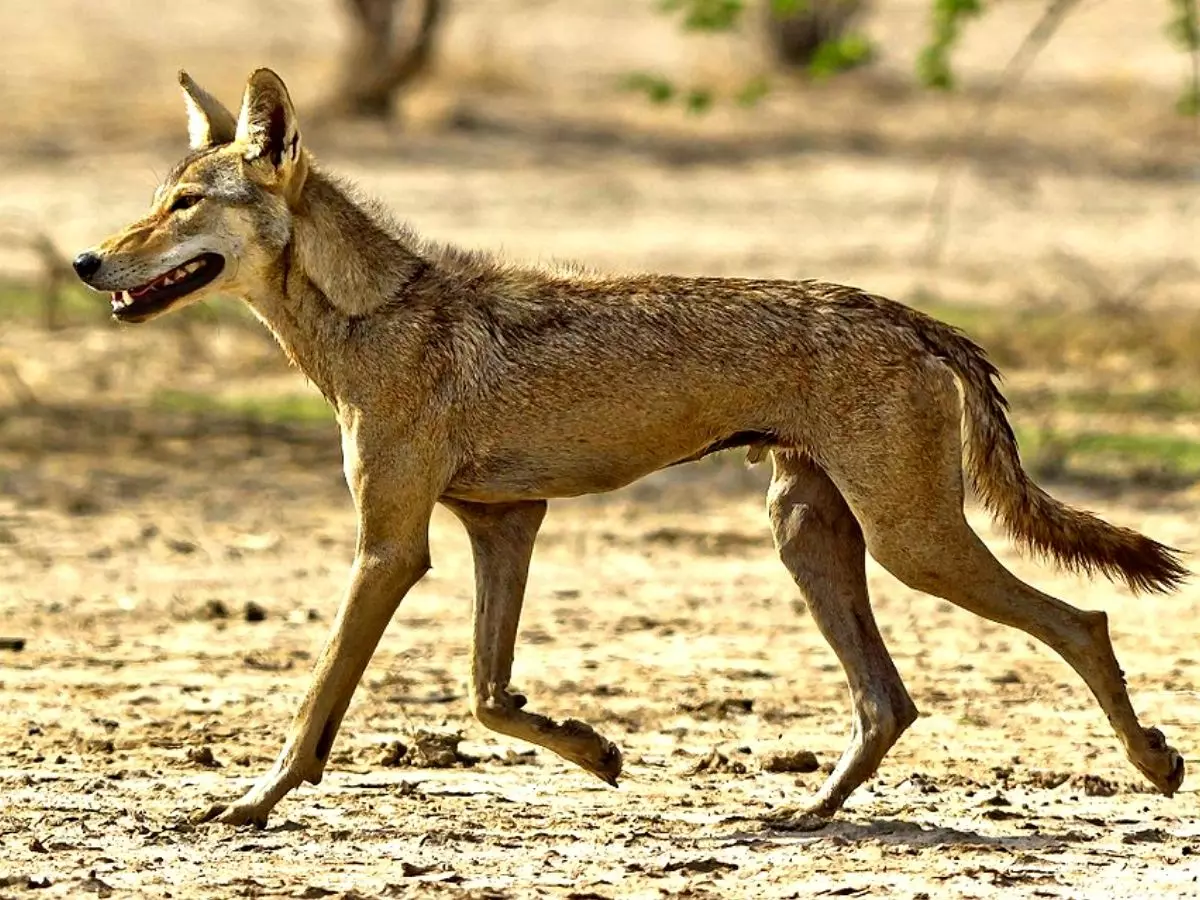With Less Than 3,000 Alive, Indian Wolf Is Most Endangered Wolf Species: Study
Researchers sequenced genomes of four Indian and two Tibetan wolves and included 31 additional candid genomes to better understand their evolutionary and phylogenomic history.

Indian wolves could be far more endangered than previously believed, reveals a novel study by researchers from the University of California, Davis.
 Wikipedia
Wikipedia
Also Read: 57,000-Year-Old Wolf Pup Found Mummified In Ice With Everything Intact But Eyes
Researchers were able to discover this by sequencing the genome of the Indian wolf for the very first time. The study also highlighted that Indian wolves could actually represent the most ancient surviving lineage of wolves.
The Indian wolf species is found specifically in lowland India and Pakistan where they¡¯re constantly threatened by human encroachment as well as urbanisation of forests and natural habitats. Today their population numbers dwindle between 2,000 to 3,000.
Indian Wolves are unique
Researchers sequenced genomes of four Indian and two Tibetan wolves and included 31 additional candid genomes to better understand their evolutionary and phylogenomic history. Researchers found that Tibetan and Indian wolves were drastically different from each other as well as other wolf species.
According to the researchers, Tibetan and Indian wolves should be recognised as evolutionarily significant units -- an interim designation that would allow prioritization of their conservation while their taxonomic classification undergoes revaluation.
Study co-author Bilal Habib, a conservation biologist with the Wildlife Institute of India, explains, "This paper may be a game-changer for the species to persist in these landscapes. People may realize that the species with whom we have been sharing the landscape is the most distantly divergent wolf alive today."
Also Read: Number Of Pixels In These Images Show How Endangered These Animals Are In The Wild
Today, Indian and western Asian wolf populations are considered as one population, however, this study¡¯s findings reveal that Indian wolves are distinct from western Asian wolves and their distribution is far smaller than previously believed.
Study lead author Lauren Hennelly, a doctoral student with the UC Davis School of Veterinary Medicine's Mammalian Ecology Conservation Unit added, ¡°Wolves are one of the last remaining large carnivores in Pakistan, and many of India's large carnivores are endangered. I hope that knowing they are so unique and found only there will inspire local people and scientists to learn more about conserving these wolves and grassland habitats."
 Wikipedia
Wikipedia
Saving Indian Wolves From Extinction
Just like Indian Wolves, US¡¯s Red Wolves are also endangered, however, today, they have a much better standing, thanks to conservation efforts that began in 1987, by breeding them in captivity, to enable a restoration program that would bring the species to a similar number as their traditional range in the southeast United States.
Also Read: 15,000 Endangered Turtles Were Smuggled To China, 260 Died Until Mexico Seized Shipment
Organisations like the Wolf Conservation Centre also participated in breeding and reintroduction programs to help the red wolves survive and thrive.
India and Pakistan -- the nations that are currently home to the endangered Indian wolves -- must adopt learnings from efforts for conservation of the Red wolves to prevent their extinction.
Efforts to restrict urbanisation with the help of legislation, especially in areas where Indian wolves often are found, could also be helpful in not affecting their populations. Let us know what you think about this Indian wolf conservation efforts, and keep reading Indiatimes.com for science conservation and tech fighting extinction stories.
